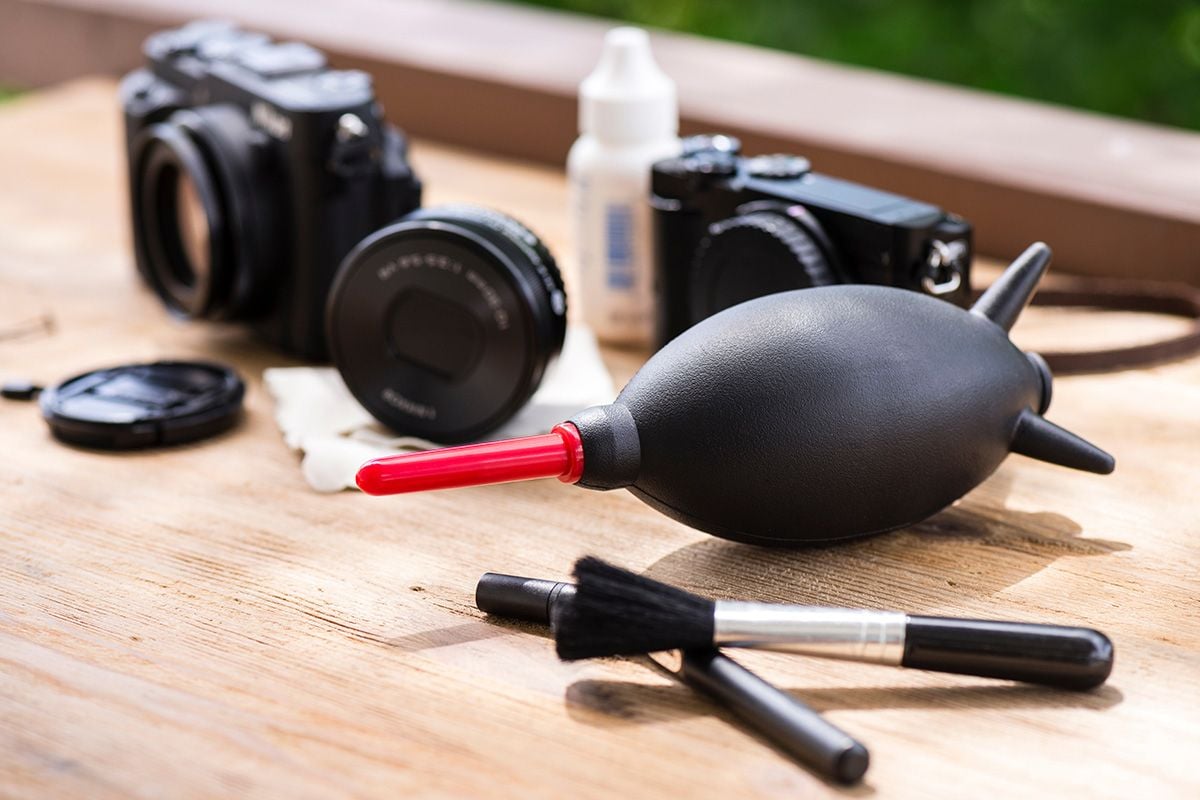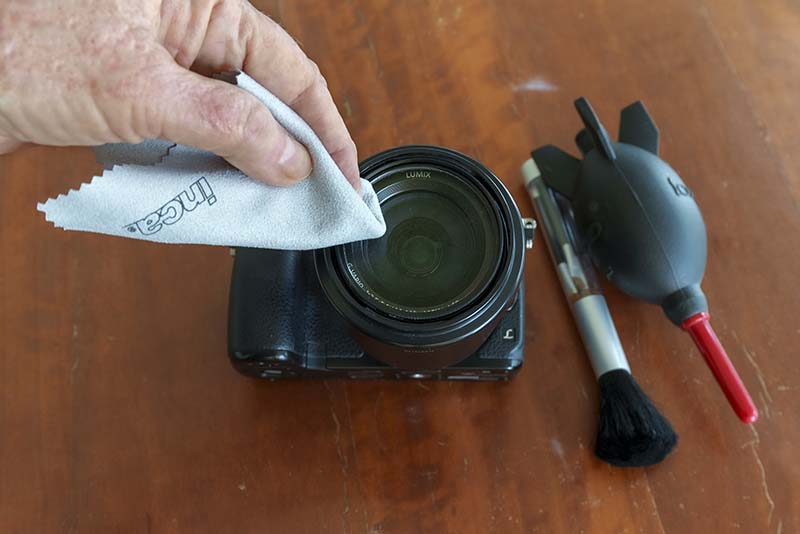Blog
How to Maintain Your Camera: Tips for Longevity and Performance
How to Maintain Your Camera: Tips for Longevity and Performance
Investing in a camera is not just a financial decision but a commitment to preserving your memories, artistic expression, or professional equipment. To ensure your camera performs optimally and lasts for years, regular maintenance is crucial. Whether you are a casual photographer or a professional, following proper care routines will protect your investment and prevent unexpected breakdowns. Here’s a comprehensive guide on how to maintain your camera for longevity and top performance.
1. Clean Your Camera Regularly
a. Exterior Cleaning
Dust, dirt, and fingerprints are inevitable during photography. Regularly wipe the camera body with a soft, lint-free microfiber cloth to keep it clean. Pay attention to buttons and crevices, where grime can accumulate over time. Use a soft brush or an air blower for hard-to-reach areas.
b. Lens Cleaning
The lens is arguably the most critical part of your camera. Use a lens blower to remove dust particles, followed by a lens brush for more stubborn dirt. Apply lens cleaning solution to a microfiber cloth (never directly on the lens) and gently clean the surface in circular motions. Avoid scratching the glass or applying too much pressure.
2. Protect the Sensor
The camera sensor is sensitive and prone to dust accumulation, especially when changing lenses frequently. If you notice dust spots in your photos, it might be time for sensor cleaning. Most modern cameras have built-in sensor cleaning mechanisms, which you can activate through the settings menu.
If manual cleaning is necessary:
- Use an air blower to remove loose particles.
- For more thorough cleaning, use a sensor-cleaning swab and solution designed for your camera type.
- If you’re unsure, it’s best to seek professional cleaning services to avoid damaging the sensor.
 3. Store Your Camera Properly
3. Store Your Camera Properly
a. Use a Camera Bag
Invest in a padded, weatherproof camera bag to protect your equipment from physical damage, moisture, and dust. Compartments in the bag can keep your camera body, lenses, and accessories organized and secure.
b. Avoid Extreme Temperatures
Cameras are sensitive to temperature extremes. Prolonged exposure to heat can damage internal components, while cold can cause condensation inside the camera. If you’re shooting in extreme conditions, use silica gel packets in your camera bag to absorb excess moisture.
c. Store in a Dry Place
When not in use, store your camera in a cool, dry place. A dedicated dry cabinet or box with humidity control is ideal for preventing moisture-related issues like fungus on lenses.
4. Handle Your Camera with Care
a. Use a Camera Strap
Always use a camera strap when shooting to prevent accidental drops. Wrist straps or neck straps can provide added security and ease of handling.
b. Change Lenses with Caution
When swapping lenses, do it quickly in a clean environment to minimize the risk of dust entering the camera body. Point the camera downward during the process to reduce the chance of particles settling on the sensor.
5. Check and Update Firmware
Camera manufacturers periodically release firmware updates to improve performance, fix bugs, and add new features. Regularly check the manufacturer’s website for updates and follow their instructions for installation. Keeping your firmware up to date ensures your camera operates smoothly and efficiently.
6. Maintain Your Camera Batteries
Proper battery care is essential for maximizing its lifespan and preventing unexpected power failures during shoots.
- Charge Wisely: Avoid overcharging your battery or leaving it on the charger overnight. Use the manufacturer-recommended charger for best results.
- Avoid Full Discharge: Lithium-ion batteries, commonly used in cameras, should not be allowed to fully discharge regularly, as it can shorten their lifespan.
- Store Batteries Correctly: If you’re not using the camera for an extended period, remove the battery and store it in a cool, dry place. Ensure it has about 50% charge to prevent over-discharge during storage.
7. Inspect and Maintain Accessories
a. Lenses
Regularly inspect your lenses for dust, smudges, or fungus. Use protective UV filters to shield the lens from scratches and environmental damage. Store lenses with caps on when not in use.
b. Memory Cards
Check memory cards for physical damage or corruption. Format them in the camera (not on a computer) after transferring files to ensure compatibility and optimal performance.
c. Tripods and Mounts
Clean tripod legs and locking mechanisms to prevent dirt buildup. Ensure quick-release plates are secure and free of damage.
8. Avoid DIY Repairs
While some maintenance tasks, like cleaning the lens or exterior, are easy to handle, internal repairs should always be left to professionals. Attempting to fix issues yourself can cause more damage and void your warranty. Always seek authorized service centers for major repairs or technical problems.
 9. Use Protective Gear
9. Use Protective Gear
a. Camera Covers
In harsh weather conditions, such as rain or sandstorms, use weatherproof camera covers to protect your gear. Many covers are designed to fit snugly around the camera while allowing access to controls.
b. Screen Protectors
Apply a screen protector to the camera’s LCD screen to prevent scratches and smudges. High-quality protectors won’t affect touch functionality or screen visibility.
10. Regular Professional Servicing
Even with regular at-home maintenance, cameras benefit from periodic professional servicing. Technicians can perform deep cleaning, calibrate components, and identify potential issues before they escalate. Consider scheduling a service visit annually or after heavy use.
Common Camera Maintenance Mistakes to Avoid
- Using Harsh Cleaning Materials: Avoid paper towels or abrasive cloths, as they can scratch delicate surfaces.
- Neglecting Your Camera Bag: Regularly clean your camera bag to prevent transferring dirt or debris to your equipment.
- Forgetting the Viewfinder: Clean the viewfinder occasionally, as it can collect dust and fingerprints.
- Skipping Regular Checks: Small issues, like loose screws or dirt in buttons, can become bigger problems if ignored.
Conclusion
Maintaining your camera is about more than keeping it clean—it’s about ensuring it performs at its best for years to come. By following these tips, you’ll protect your investment, extend the lifespan of your equipment, and enjoy stress-free photography sessions. A well-maintained camera not only enhances your shooting experience but also ensures your gear is ready whenever inspiration strikes.


